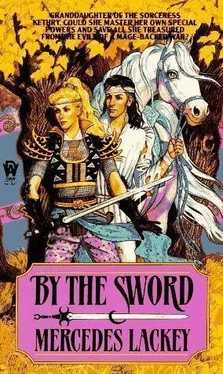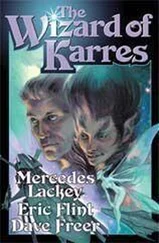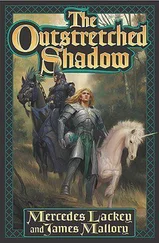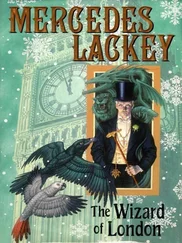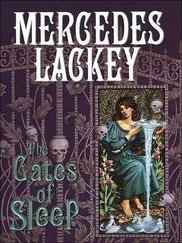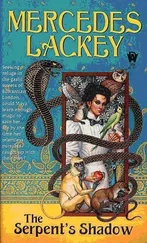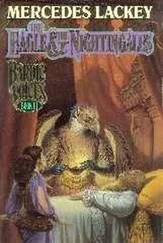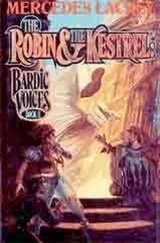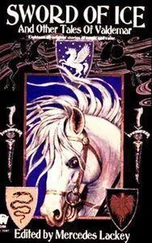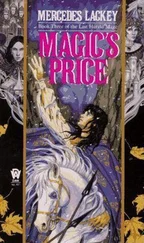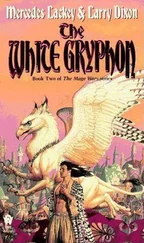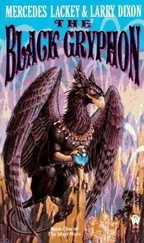She noticed one or two nearest her shuddering at the idea, and nodded to herself.
“As I said, the Code and the Charter allow for that. We can break out and go home; this is a no-win, hopeless situation. However—we won’t be able to take any wounded with us, and anyone who goes down on the way out stays behind. My guess is we’ll lose about half of our troops—the ones that are left—getting out. It’s not going to be easy, but staying here means worse odds, so far as I can tell.”
“What are the Heralds doing?” asked one of the Lieutenants. “They’re mounted, and they’re as good as we are, most of ’em.”
“Good question,” Kero replied. “They’re going to break Selenay out, if they can. It’s by no means certain; Ancar wants her hide, and if he finds out they’re breaking her loose, he’ll bring everything to bear that he has. We can use that as a diversion, of course, which makes our chances better.”
“Then what?” asked the same voice as before. “Then they’re going to turn back and rejoin the fight,” she replied, as neutrally as she could. “All but an escort force to get Selenay to safe ground.”
A murmur of surprise and admiration rose from the troopers. Some of the Heralds—Eldan, for instance—had made themselves very popular; others, like the one Eldan had replaced, were considered nuisances. But the Skybolts could not help but admire anyone with the kind of guts it took to break free of a suicide-situation, then turn and go back into it.
“That has little or nothing to do with us,” Kero reminded them forcefully. “We’re mercenaries. They aren’t. They have oaths to fulfill, and duties that they won’t renege on. We’re in this for pay. Now, the Skybolts have never been an ordinary Company, and I’ve never been an ordinary Captain. That’s why I’ve called you all here. I’m not going to make a decision like this one alone, or even with my officers. Do we try to go, or do we stay? And do I stay your Captain—”
The shouts of disapproval that met that question made her feel terribly self-conscious. “All right,” she bellowed at last, holding up her hands for silence. “All right, if you want me that badly, you’ve got me. But the other question—break out, or stay and do what we can? You know the drill; dark-colored pebble for ‘go,’ light or white for ‘stay.’ And no maybe-colored rocks, either—I don’t want any maybes on this one. Geyr will collect your votes.”
She turned and sat down, waiting for the results of the vote, keeping her mind tightly sealed against their thoughts. She didn’t want to know what they were thinking, and she didn’t want to influence it, either.
She tried not to think of anything, really. As Geyr moved out with the basket into the massed fighters someone else called out a question. “What about you?”
“I’ll be going with you, since you’ll have me,” she said. “And I’ll stay with you as far as Bolthaven; I intend to call another vote then, and see if you still want me when this is over. I have my responsibilities as much as these Heralds have, and my oaths have been made to you. I don’t intend to break them.”
She heard the murmurs, saw the looks, and knew what they were thinking as well as if she had opened her mind to them. They all knew about Eldan—quite a few of them knew about their first meeting, ten years ago. They knew what she would be sacrificing by leading them if they voted to break out, or at least they thought they did.
She ignored the murmurs, and kept her expression schooled into serenity. I made my oaths, I have my responsibilities. He knows that. It doesn’t hurt any less—but there’s no choice. Vows are made to be kept, and he would be the first one to agree.
Finally Geyr brought the basket around to her, and she steeled herself against the inevitable. How could they not vote to save themselves? Only a fool would stay here and die. So, I’m a fool. But it isn’t just Eldan.... True, the odds were only fifty-fifty that any of them would make it out in the clear, and those weren’t good odds—but when had a youngster ever thought he couldn’t beat the odds?
Then Geyr turned the basket upside-down on the table—
And she felt her mouth dropping open in shock.
A pile—a tiny mountain of white. Pale sandstone pebbles trickled down off the top with a gentle clicking sound. She spread the pebbles out on the table with a shaking hand. No dark pebbles, none at all.
They’d stay, fighting beside the Valdemar folk. No dissenting votes.
She looked up at them, searched each face she could see, and found nothing there but determination. “You’re mad,” she said, flatly. “You’re all of you mad. We haven’t a chance if we stay.”
Shallan stood up, awkwardly, as if she’d been appointed as spokesperson for the entire Company. “We don’t think so, beggin’ your pardon, Captain. ’Sides, what’s the odds of a merc livin’ long enough to collect his pension from the Guild, eh? We all got to talking about this last night. General feeling is, these people here deserve help. Merc’s likely to go down any time—but if we got a choice in goin’ down, I’d rather do it for somebody that deserves a hand, than in fightin’ for some pig-merchant workin’ out a fight over territory with some other hog, an’ doin’ it with my sword an’ my life.”
There was a murmur of agreement from the rest, and an “Aye, that!” or two from the veterans old enough in service to remember Ardana and the Seejay debacle.
Kero rose slowly to her feet, and to Shallan’s immense surprise, embraced her. She kept one arm around her old friend, as she scanned their faces again, this time with her eyes burning with the effort of holding back tears. “You’re all fools, thank the gods,” she said huskily. “Every one of you. As much fools as me—if you’d voted me out, I’d have stayed myself. All right, Skybolts. We stay. And tomorrow, we show Ancar what it means to take on the finest Company in the Guild!”
The cheers could probably have been heard in Haven.
And no one would ever guess, she thought, with a mixture of pride and sorrow, that they’re cheering their own deaths. Poor, brave fools.
This will probably be our last battle. It’s ten to one it’ll be mine. May the gods help us all.
Daren stared into the stranger’s flat, dead eyes, and asked in frustration, “So what am I supposed to do with you?”
The tent was hot and felt stuffy, yet every time Daren looked at this man, he got a chill down the back of his neck. Better dead, he’d have been better off dead. Poor bastard.
“Lead us, m’lor’,” replied the nameless man, who until a year ago had been a simple fanner, with no cares of who ruled and who did not. “Lead us. We got nothin’, now. Our families is dead, or as good as. Our homes is gone. Our fields is weeds an’ wild things. Lead us.”
“Thrice-dead Horneth,” Daren muttered under his breath. Lead them, he says. Farmers on horseback. Whatever cavalry skills they had vanished when the mage controlling them died. And here I am, with a horde of undisciplined, half-mad farmers with no memory of what to do with swords and lances.
And yet—they were half-mad, and had nothing to lose. Ancar had stolen everything from them, including their names, for none of them remembered exactly who he was. All they had left were the memories of what had been done to them, and to their loved ones, memories so hedged about in rage that nothing the mages could do would erase them, and so those memories had been blocked off until Daren had given the fateful, desperate command to the earth— put everything back the way it was.
Читать дальше
